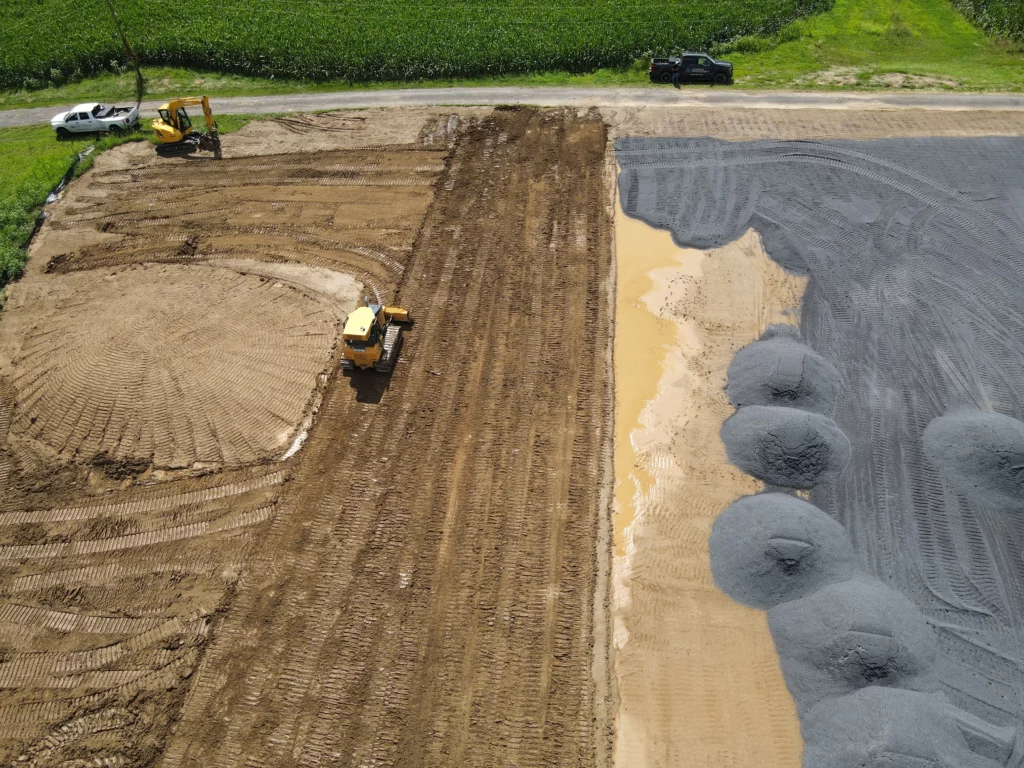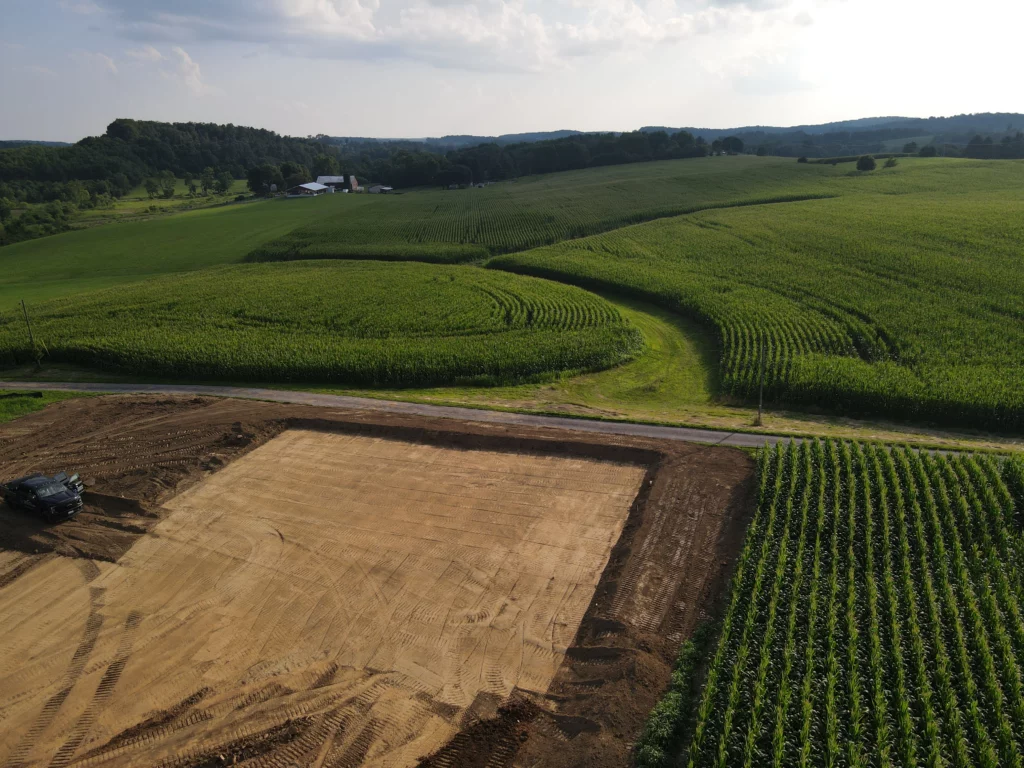EXCAVATION CONTRACTOR BLOG
Site Excavation 101
Posted 2/10/2023 (Updated 8/21/2023)
Site excavation is an essential element in the construction process, playing a vital role in preparing the ground for the foundation of a building or structure. This process involves the careful removal of earth, rock, and other materials from the site, creating a leveled and stable ground foundation. The excavation process requires specialized equipment, such as bulldozers, excavators, and dump trucks, to efficiently remove the material. (Learn more about the Role of an Exceptional Excavation Contractor here) Coastal Site Services, a renowned company in the field, provides professional excavation services for construction projects. They have the expertise and resources to handle various types of site excavations, whether it’s for residential, commercial, or industrial purposes.

With their knowledge and experience, Coastal Site Services ensures that the earthwork is done accurately. We take into account factors such as soil type, drainage, and environmental considerations. Proper site excavation is crucial as it lays the foundation for the entire structure, ensuring it remains stable and durable in the long run. It also allows for the installation of utilities like plumbing, electrical, and sewer systems. In summary, excavation is a critical step in the construction process that requires careful planning, skilled operators, and reliable equipment to create a solid foundation for any building or structure. The expertise provided by Coastal Site Services guarantees a thorough and efficient excavation process, paving the way for successful construction projects.
Site Excavation – Site Assessment
The first step in site excavation is to assess the site. This involves a thorough examination of the land, including its topography, geology, soil type, and groundwater levels. This information is critical to determining the best excavation techniques to use. Be sure to plan for potential challenges such as soil stabilization, underground utilities, and other obstructions. A skilled contractor will be able to help advise on maximizing land use as well. Check out this blog post about Land Use Efficiency.
Site Development Techniques
There are various excavation techniques that can be used depending on the type of soil, the size of the excavation, and the end-use of the site. Some of the most common excavation techniques include:
- Hand Excavation: This involves the use of hand tools such as shovels, pickaxes, and mattocks to remove soil and other materials. Hand excavation is often used for small excavation projects or when access to heavy equipment is limited.
- Mechanical Excavation: This involves the use of heavy machinery such as backhoes, bulldozers, and excavators to remove soil and other materials. Mechanical excavation is often used for larger excavation projects and is more efficient than hand excavation.
- Blast Excavation: This involves the use of explosives to remove rock and other materials. Blast excavation is often used for large-scale excavation projects and is particularly useful for removing materials that are too hard for mechanical excavation.
- Trench Excavation: This involves digging a trench, often for the purpose of installing underground utilities such as water and sewer lines. Trench excavation requires precise excavation techniques to ensure the trench is of the correct depth and width.
READ MORE — The Importance on Site Development Planning in Construction Projects
Safety Considerations
Site excavation can be a dangerous process, and it is essential to take the necessary safety precautions. Some of the key safety considerations include:
- Protective Equipment: Workers should wear protective gear such as hard hats, safety glasses, and work gloves to protect themselves from falling debris and other hazards.
- Site Preparation: The site should be properly prepared before excavation begins, including the removal of any obstacles or hazards and the marking of any underground utilities.
- Heavy Equipment Safety: Operators of heavy equipment such as bulldozers and excavators should be properly trained and licensed. The equipment should be regularly maintained and inspected to ensure it is in good working order.
- Erosion Control: Erosion control measures should be implemented to prevent soil erosion and protect adjacent properties and waterways.
- Ground Stability: The stability of the ground should be assessed before excavation begins to ensure that the site is safe for workers and equipment.

In conclusion, site excavation is a crucial step in the construction process that requires a thorough understanding of the key principles and basics. From site assessment to excavation techniques and safety considerations, it is essential to take the necessary steps to ensure the success of your excavation project. Whether you are a construction contractor, engineer, or homeowner, it is important to work with experienced professionals.
Coastal Site Services is a premier construction contractor in Taneytown, MD. We have decades of experience in site development, earthwork/grading, stormwater management, and riding arena construction! Contact us regarding your next project today.
Frequently Asked Questions (FAQs)
Question 1: What is an excavation site?
An excavation site refers to a specific location where the process of excavation has taken place. It can be an archaeological site, construction site, or any place where digging or clearing has been done.
Question 2: What does the term “excavate” mean?
Excavate is the action of digging, clearing, or removing earth or debris from a specific area, typically with the use of machinery or tools.
Question 3: What is a log in the context of site excavation?
In the context of excavation, a log refers to a detailed record or documentation of the activities and findings during the excavation process. It is commonly used by archaeologists and construction crews to keep track of the work done.
Question 4: What does it mean to conduct an excavation?
To conduct an excavation means to supervise and oversee the entire process of excavation, including planning, organizing, and managing the activities involved in digging and clearing a specific site.
Question 5: Can machines be used in an site excavation?
Yes, machines are commonly used in excavations to facilitate the digging, clearing, and moving of earth or debris. They can include heavy machinery like excavators, bulldozers, and backhoes.
Question 6: Is road construction considered an site excavation?
Yes, road construction often involves excavation work as it requires digging and clearing the ground to create a stable foundation for the road. Excavation is an essential part of road construction projects.
Question 7: What does it mean to “surround” an excavation site?
To surround an excavation site means to enclose or secure the area around the excavation to ensure safety and prevent unauthorized access. This is typically done using barricades, tape, or fencing.
Question 8: Can the requirements for an excavation site vary?
Yes, the requirements for an excavation site may also vary depending on the nature of the project or the specific regulations set by authorities. It is important to follow the necessary guidelines and requirements.
